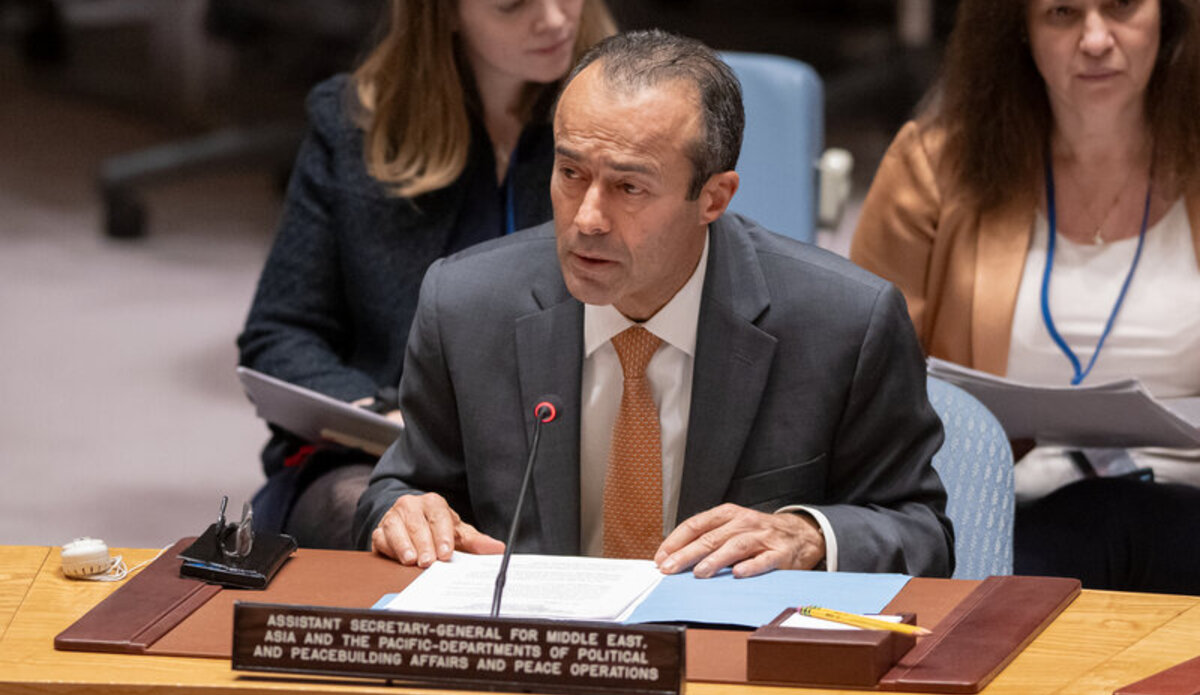Remarks for Mr. Khaled Khiari, Assistant Secretary-General,
Department of Political and Peacebuilding Affairs
REMARKS TO THE SECURITY COUNCIL
ON NON-PROLIFERATION/DPRK
New York, 19 December 2023
Mr. President,
According to the official news agency of the Democratic People’s Republic of Korea (DPRK), and various government sources, the DPRK launched a Hwasong-18 type intercontinental ballistic missile (ICBM) at 8:24 AM local time on 18 December. The missile flew a distance of approximately 1,000 km and reached an altitude of 6,500 km before falling into the sea.
This is the fifth launch of an ICBM in 2023, following a Hwasong-15 in February, a Hwasong-17 in March, and solid-fuel Hwasong-18 missiles in April and July. The systems are reportedly capable of reaching most points on Earth.
In November, the DPRK also announced that it had carried out two successful tests of a new engine for a solid-fuel intermediate range ballistic missile.
Mr. President,
On 18 December, the Secretary-General strongly condemned the launch of a long-range ballistic missile by the DPRK. He urged the DPRK to fully comply with its international obligations under all relevant Security Council resolutions. He also reiterated his call on the DPRK to reopen communication channels, and to resume dialogue without preconditions to achieve sustainable peace and the complete and verifiable denuclearization of the Korean Peninsula.
Mr. President,
The launch of yet another ICBM is of serious concern. Despite numerous meetings of the Security Council on this matter in 2023, the DPRK did not heed the strong call from members of the Security Council to refrain from further launches.
In addition, regrettably the DPRK did once again not issue any airspace or maritime safety notifications. The unannounced launches represent a serious risk to international civil aviation and maritime traffic.
Recalling that on 21 November, the DPRK successfully placed into orbit a reconnaissance satellite using ballistic missile technology, announcing it would launch “several reconnaissance satellites in a short span of time”. We reiterate that any launch by the DPRK using ballistic missile technology is a violation of relevant Security Council resolutions, and we strongly urge the DPRK to refrain from such actions.
Mr. President,
At this particularly difficult moment in securing global peace and security, it is imperative to deescalate the situation on the Korean Peninsula to create an environment conducive for cooperation.
We call on Security Council Members to unite and make full use of the tools of dialogue, diplomacy, and negotiation, while fully complying with all Security Council resolutions. We also urge the DPRK to embrace diplomacy, rather than choosing isolation, as the way forward.
In this respect, I would like to acknowledge the participation of the Permanent Representatives from the DPRK as well as the Republic of Korea in this meeting. I welcome the opportunity for all parties to speak, as the lack of communication channels hinders the possibility of progress.
I emphasize again the importance of reinstating communication channels, particularly between military entities. Exercising maximum restraint is critical to avoid unintended escalation.
Mr. President,
Once again, I want to underscore concerns regarding the humanitarian situation in the DPRK. The United Nations is ready to assist the DPRK in addressing the needs of its vulnerable populations. We note that international travel in and out of the DPRK is now taking place at a growing rate. We urge the DPRK to allow the re-entry and rotation of the international community, including the UN Resident Coordinator and UN agencies. A collective return will significantly enhance international support for the people of the DPRK and the implementation of the 2030 Agenda.
Thank you, Mr. President.

